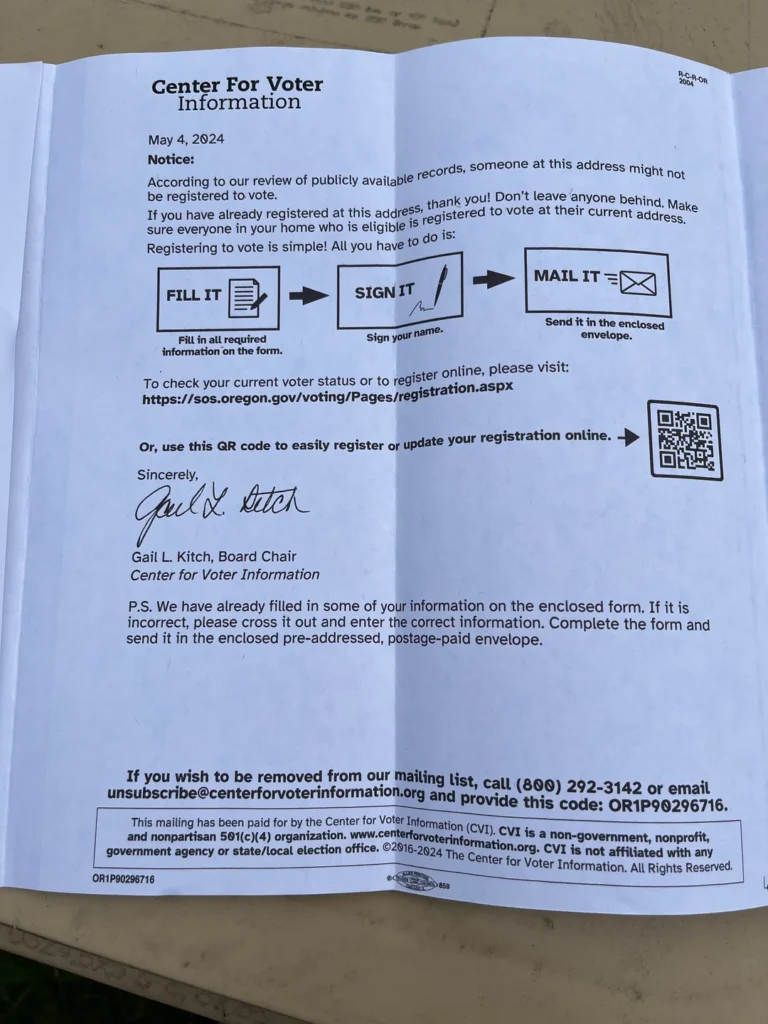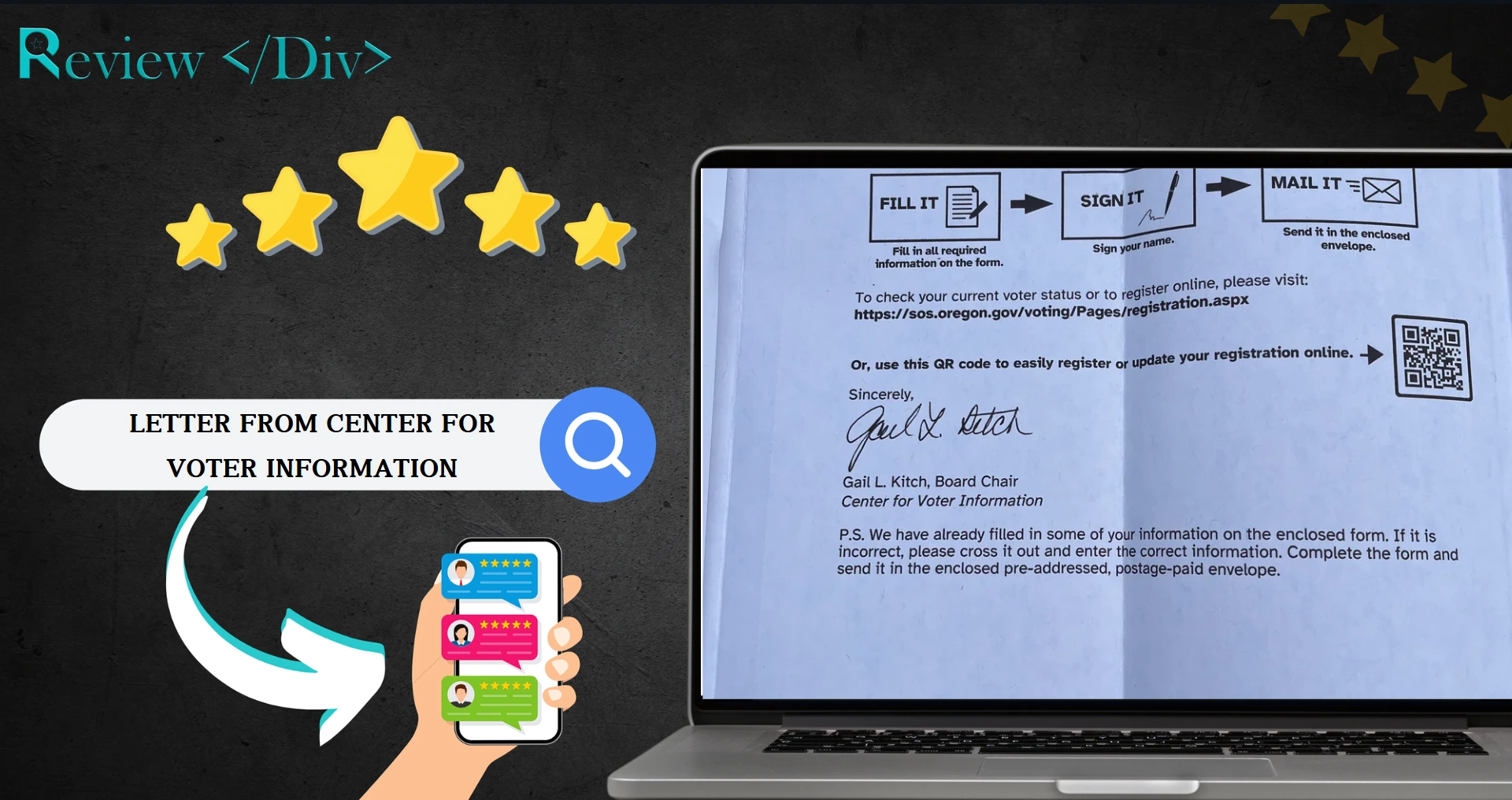Many people have recently received mailers from the Center for Voter Information (CVI) enabling them to register to vote even if they’re already registered. These mailers look like official government documents, which can make them seem misleading or suspicious.
In response, state officials, including the Ohio Secretary of State, have warned that these mailers are not government-issued and have advised people to rely on trusted sources for accurate voting information.
Letter From Center for Voter Information Overview
The Center for Voter Information (CVI) is a nonprofit group that aims to boost voter registration and turnout. Though not part of the government, CVI uses public voting records to contact possible voters.
Their mailers often include pre-filled voter registration forms that can look official, which makes some people think they are hearing from an election office.

CVI tries to make voting easier, especially for those who have not registered or face challenges in the process. However, some of their methods have raised concerns due to how they present information.
CVI works independently and can legally use publicly available data for outreach. While they have good intentions, their approach can sometimes cause confusion and misunderstandings.
Expert Reviews on Letter From Center for Voter Information
Experts warn that the mailers from the Center for Voter Information (CVI) look like they come from the government.
They use official-looking fonts and designs, which can trick some people into thinking they are receiving messages from a government source.
According to the Ohio Secretary of State’s office, only verified government offices or websites should send out official election mail.
Some people have reported getting mailers that are addressed to the wrong names or that suggest they are unregistered when they actually are.
These mistakes come from CVI’s use of public data, which can be outdated. Such inaccuracies can be annoying and lead voters to question whether they can trust CVI’s information.
In certain cases, CVI includes a “voter report card” in their mailers. This card shows whether you and your neighbors have voted in past elections.
While this information is public, some people find it intrusive. Experts suggest that although CVI intends to encourage voting, others feel uncomfortable and see it as an intimidating tactic.







